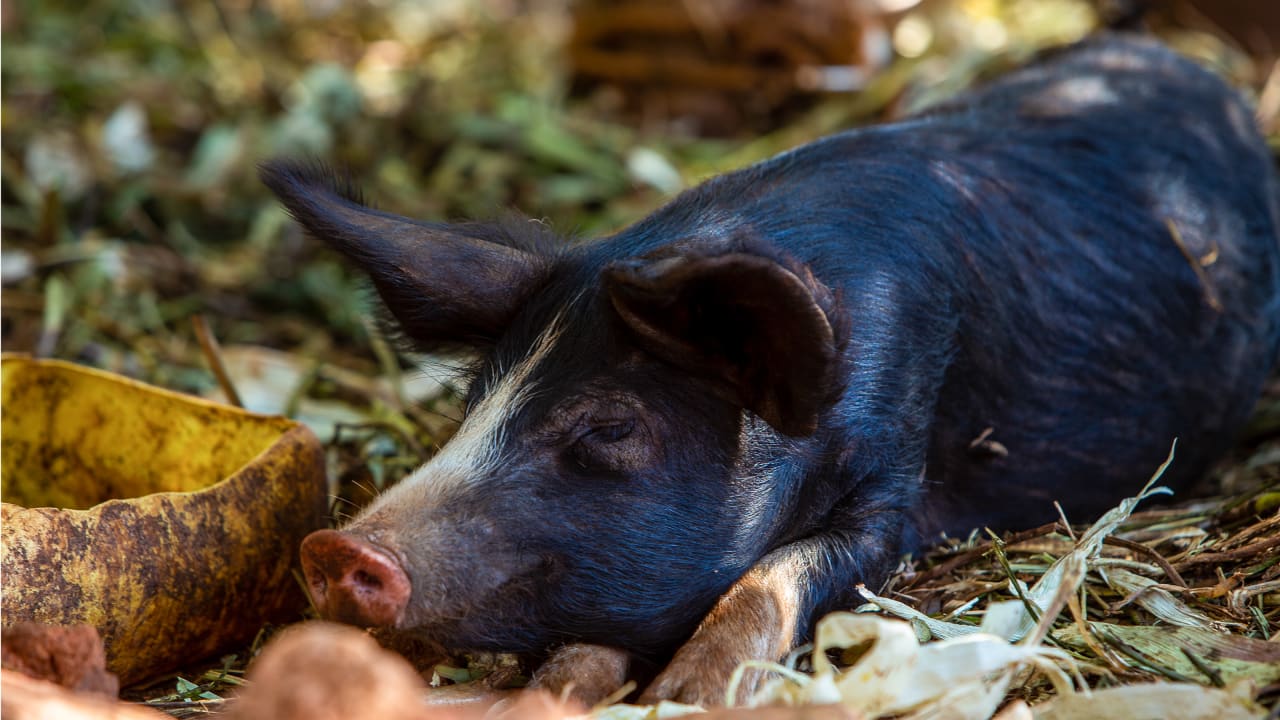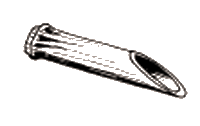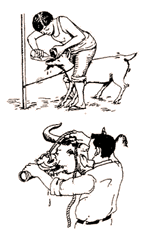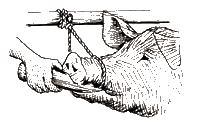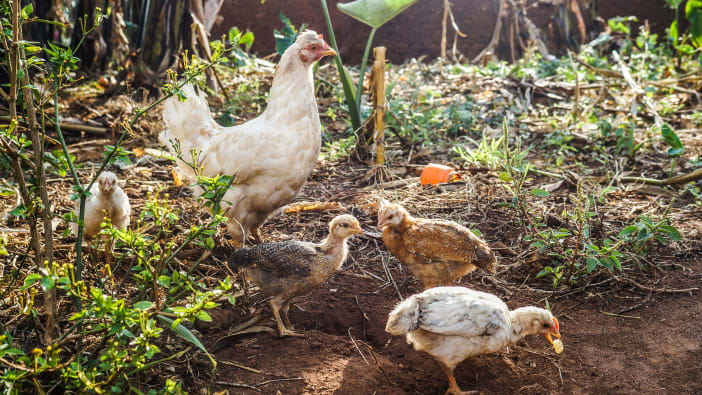Drenching is the forced pouring of liquid preparations down the throat of an animal.
Drenching can be used for all livestock. During drenching, the animal’s head must be raised so that the liquid does not enter the lungs. A bamboo tube, gourd or bottle (glass or plastic) can be used for drenching ruminants and pigs.
If a bottle is used it must be strong and unlikely to break and hurt the animal. For chickens, use a syringe without the needle, a dropper or a straw (rice, sorghum or plastic).


